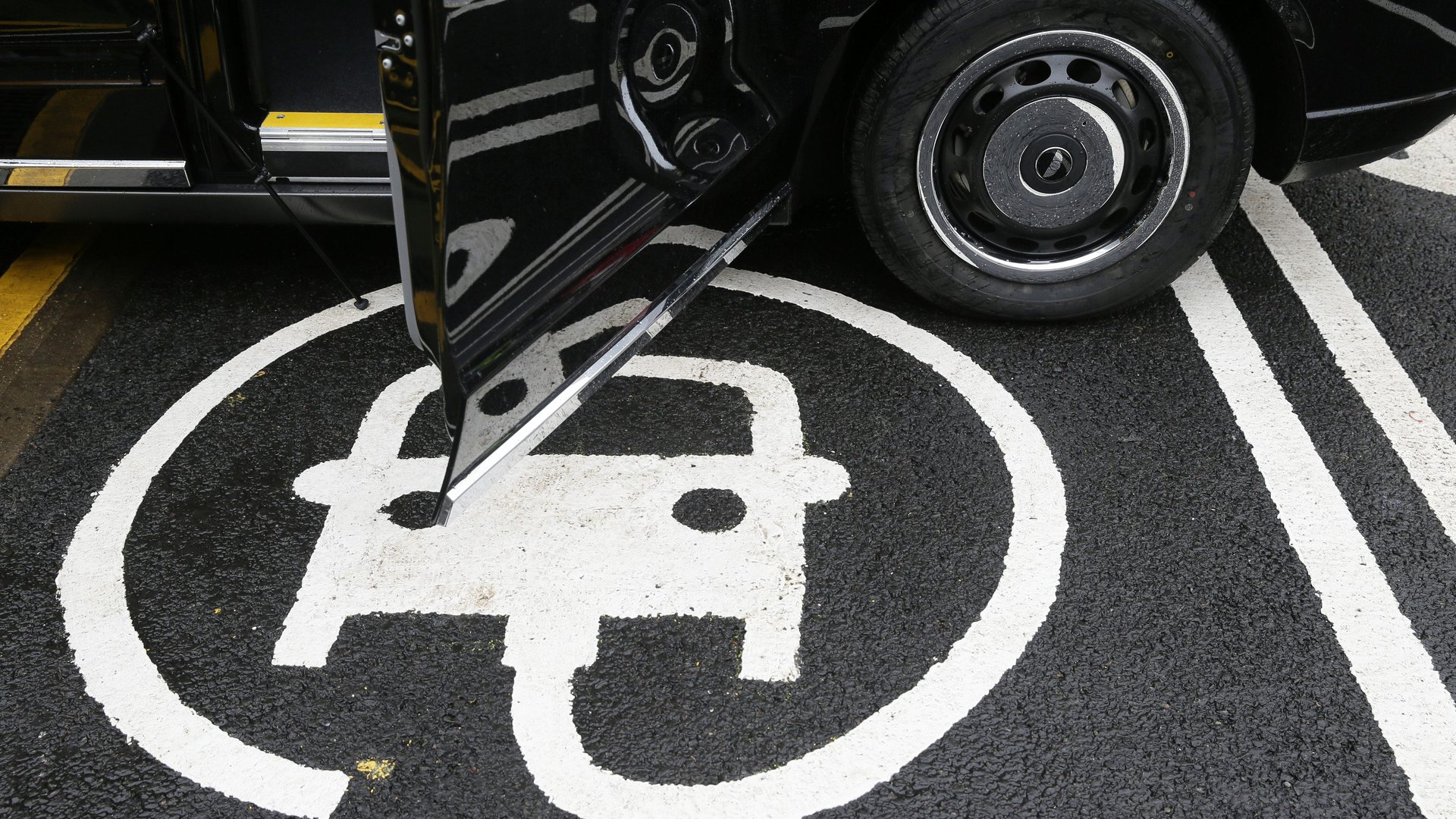If you own an electric car, advertisers could cover your next charge
You generally have to pay to fill up your own gas tank, but if you own an electric car, advertisers may soon pay for to recharge your batteries.


You generally have to pay to fill up your own gas tank, but if you own an electric car, advertisers may soon pay for to recharge your batteries.
That’s the business model behind Volta Charging, a US startup which has raised almost $60 million to build out a vehicle charging network. Volta is banking on one of the only slices of the advertising market that is growing, but not yet dominated by either Facebook or Google: outdoor advertising.
Volta’s 500 charging stations display video ads on both sides of a kiosk with the ability to plug in a variety of cars in public parking spaces, with advertising revenue that’s meant to offset the cost of providing free charing to customers. It plans to double the number of stations it has by the end of the year, and Volta says it has already given away more than 22 million free electric miles. Most stations are in West Coast cities, although it’s expanding to Boston, Atlanta, and New York. Expect to see the chargers in valuable advertising locations such as stadiums and supermarkets. (Of course, traditional gas stations in the US have had TV and outdoor advertising for years, although they’re unlikely to have subsidized your fuel.)
Its business model may be unique, but Volta isn’t the only startup eager to own infrastructure in the coming shift in transportation. Investors have poured hundreds of millions of dollars into serving the 220 million hybrid and battery electric vehicles (EV) expected to be on the world’s roads by 2030, according to the International Energy Agency (pdf). Last year, the world’s stock of EVs surpassed 3 million for the first time.
Public charging remains a hassle outside of cities with a critical mass of EVs. Most charging stations don’t have simple debit or credit cards swipe systems, and the chargers are often proprietary to certain car manufacturers or charging companies, according to a recent review of the EV-charging landscape in the journal Sustainability.
That’s slowly changing. Chargepoint, which acquired a network of 9,800 charging stations from General Electric in 2017, has raised $125 million to build out what it hopes will be a larges network of proprietary chargers, where drivers pay for the electricity. Another startup, Greenlots, is building an open-source charging station software that it hopes will become the standard. Volkswagen, as part of a $14.7 billion settlement to resolve its diesel-cheating scandal, also plans to invest $2 billion of its own cash on vehicle-charging infrastructure. Tesla has its own proprietary Supercharger network for its customers, as well.
For now, the winning model of charger remains unclear, as the EV market is still in its infancy. Brook Porter, a green-technology investor at the venture firm Kleiner Perkins, sees an ATM model is plausible in the future with multiple interoperable charging networks across the US, and charging stations at major retail outlets as a way to attract customers to store. “It’s shocking to me this hasn’t happened yet,” he told Quartz in an interview last year.
If Volta succeeds, some of those chargers may dispense the equivalent of free money for EV owners—as long as they can stand the advertising.